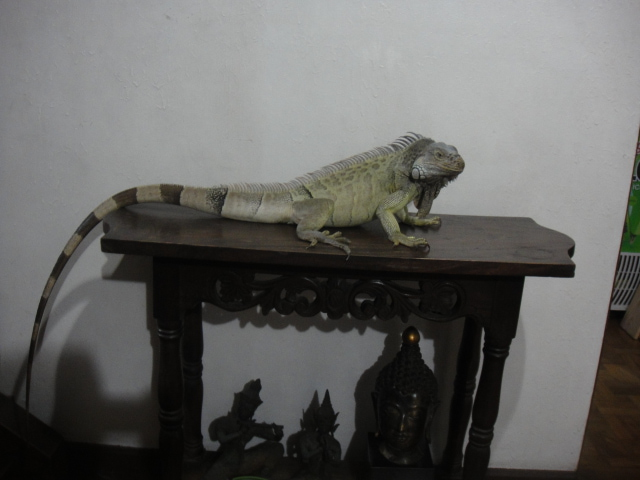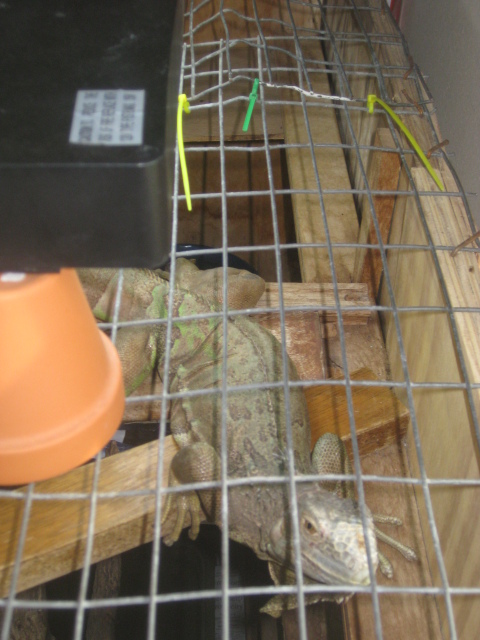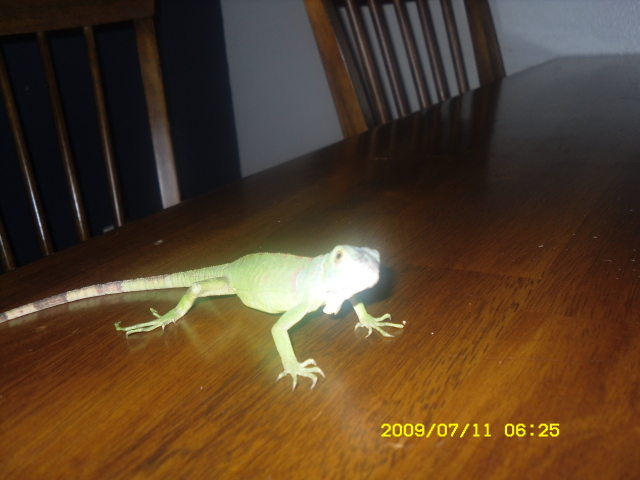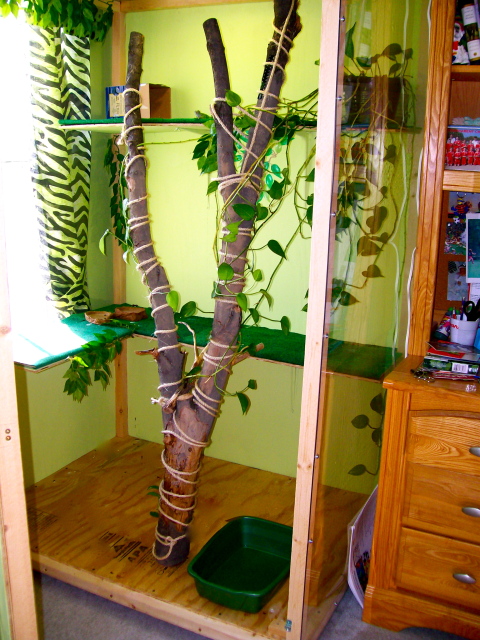QuestionHello, I just got my baby Ig yesterday, I know he really need to have a bath
but when I go to grab him he gets agitated and runs away, I don't want to
stress him out. How can i transfer him from his cage to the bath and vis
versa. Thanks!!
AnswerMatthew,
Baby iguanas are extremely paranoid creatures. Their instincts tell them that anything bigger than them is a predator. This being said, I always tell people to expect their hatchlings to be scared, skittish, stressed out and even mean.
Now, when you first get a new iguana and are trying to get him accustomed to his new environment, it is recommended that you do not hold the iguana for about 1 week and until it begins eating on its own. This will give the iguana time to get used to his/her surroundings and figure out what to expect in his/her everyday life.
Iguanas strive for consistency, so it really helps eliminate stress in the iguana if you set a daily schedule, for example: set the lights on a timer so the bright UV lighting comes on at the same time every day and goes off at the same time every night. Also, feeding the iguana at the same time every day and trying to interact with the iguana around the same time every day will also help.
Once your iguana gets used to his surroundings and seems to be eating and sleeping normally, then you can start trying to handle the iguana and form a relationship. Training a young iguana to be comfortable with you is not easy and takes time. I would recommend holding the iguana for about 10 minutes a day to start with and not putting him back in his cage when he squirms, tail whips, thrashes, etc. because that will give the iguana the impression that if he does these behaviors, he will get what he wants (to go back into his cage).
As time goes on and your iguana starts getting more used to you and less skittish, hold him for longer periods of time and start walking around the house with him on your shoulder or head to do activities so he gets used to human contact. (Escape-proof your house or the room you are in first because hatchlings can jump and run and wedge themselves into the smallest of crevices).
So, basically, what I am telling you is that it is normal and healthy for your iguana to behave this way at his age. It will take time and persistence to develop trust between him and you. It also depends on the iguana's personality. I have some iguanas whom I held everyday when they were growing up that still run from me to this day and some who don't. It is not good to expect an iguana to ever become as affectionate as a cat or dog because you may find that this never comes to be true with your iguana.
Finally, just so you are aware, 9 out of 10 iguanas do not live to see their 1 year old mark. The reasons for this are oftentimes enhanced by improper diet and lighting. Be sure you are knowledgeable on proper foods and get the correct lighting. This will play a huge role int the physical and psychological development of the iguana.
Good Foods: Collard greens, mustard greens, turnip greens, orange squashes, green beans, parsnips, dandelion greens, escarole, sweet peas, tropical fruits, avacado, alfalfa, cucumbers, tomatoes
Bad Foods: Lettuce (even romaine), excessive amounts of spinach, broccoli, cauliflower, carrots and cabbage. NEVER give the iguana animal protein (meats, cheeses, insects) and also, minimize commercial iguana pellets/cubes because they can be over-fortified and hard on the kidneys and contribute to dehydration.
Lighting: You NEED a UVA AND a UVB bulb or a combo bulb. MAKE SURE YOU HAVE A UVB BULB! It is MANDATORY or the iguana becomes affected by the inability to absorb calcium. Keep the UV on for 10-12 hours a day.
Temperatures: at least 85 on the cool side of the tank and 90-95 for a basking spot during the day.
Any further questions, please ask. I hope I could help.
Sincerely,
Sara J Gwerder
President
Raptor Rescue Iguana Sanctuary
Shreveport, LA

 Sick iguana
QuestionIggy
QUESTION: Hi Diane.
IGGY, m
Sick iguana
QuestionIggy
QUESTION: Hi Diane.
IGGY, m
 7 month old iguana
QuestionMy iguana isnt using her back legs. There is a
7 month old iguana
QuestionMy iguana isnt using her back legs. There is a
 Ursula Update
QuestionQUESTION: Hi Diane!
I just wanted to update yo
Ursula Update
QuestionQUESTION: Hi Diane!
I just wanted to update yo
 Red Bumps
Question
Him about 4 months ago
Ive noticed that my igu
Red Bumps
Question
Him about 4 months ago
Ive noticed that my igu
 Plant in habitat
Question
Zeuss Habitat
I have a young iguana (not even
Plant in habitat
Question
Zeuss Habitat
I have a young iguana (not even